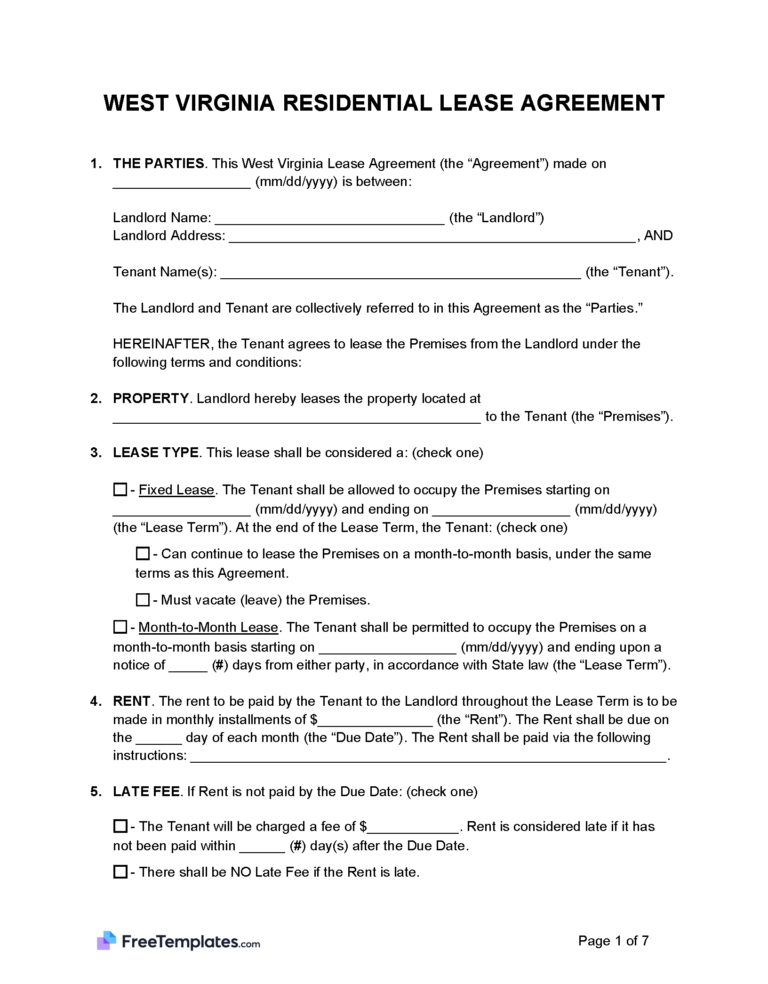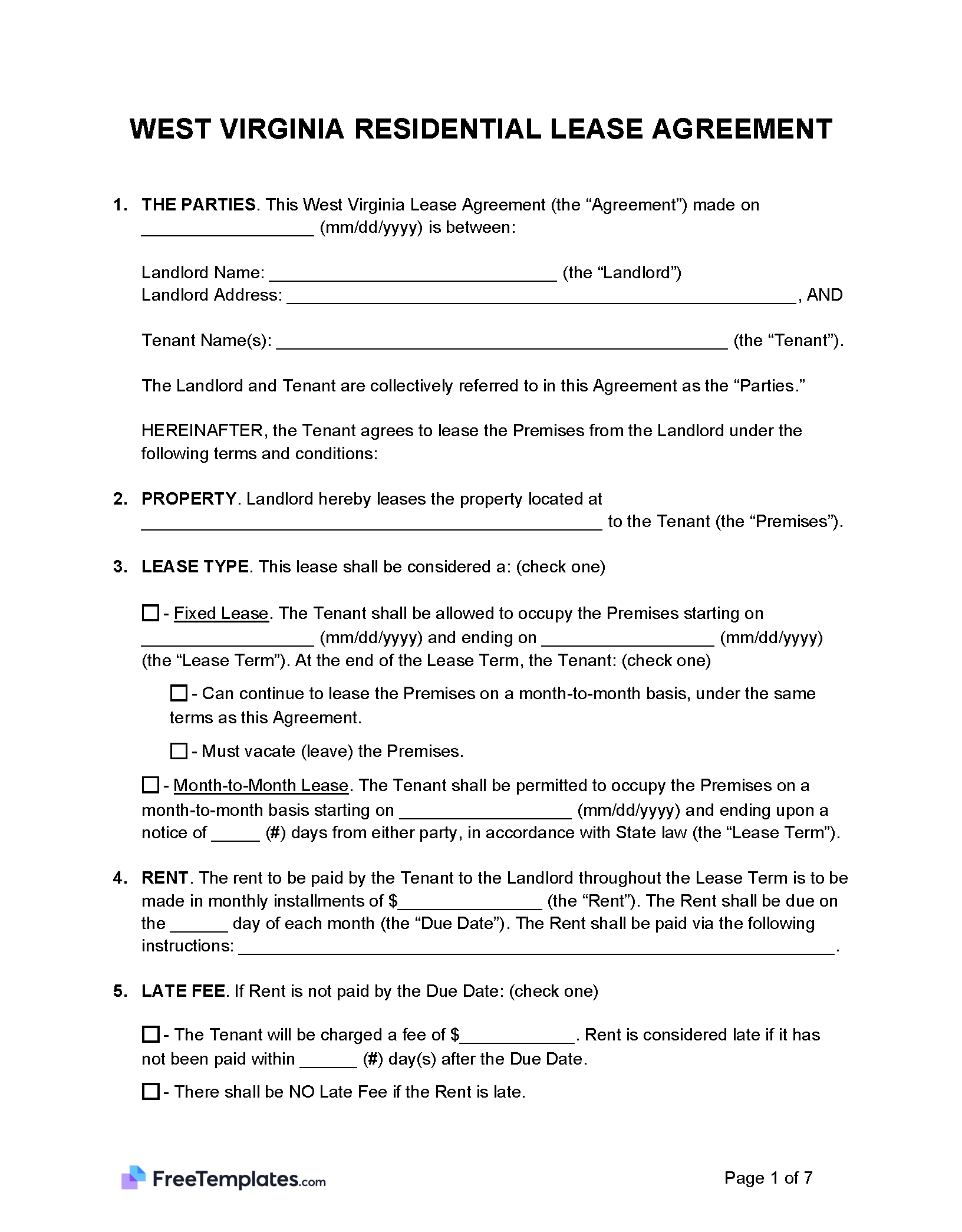By Type (6)
| Standard Lease Agreement – An arrangement between a landlord and a renter for a property rental in West Virginia. |
| Commercial Lease Agreement – A binding agreement between a business and a property owner discussing rent details. |
| Month-to-Month Lease Agreement – When a renter and a property owner come to an acknowledgment for a short-term rental property that renews at the end of each month. |
| Rent-to-Own Agreement – When the renter has the option to apply their payments towards the purchase of the building at the end of their lease. |
| Roommate Agreement – Allows for a contract between two tenants of the same property to lease a building together. |
| Sublease Agreement – Lets the original renter rent out their property or room to another tenant for a set period of time. |
Disclosures (2)
Lead-Based Paint Disclosure – If the home was built before 1978 and may contain lead paint, the landlord must disclose all knowledge of potential health hazards. This affidavit must be written in the rental contract and signed by both parties.
Non-Refundable Fees – A payment made to secure a rental property that will not be refunded to the renter after the lease ends. This must be written clearly into the rental agreement.
Security Deposit
Maximum Amount – To protect the property from possible damage costs, the renter has the ability to charge the tenant whatever security deposit they see fit. There is no maximum or minimum amount required in the state of West Virginia.
Returning to Tenant – The property manager must return all security deposit funds to the renter no longer than 60 days after the rental agreement ends. The funds must be returned in 45 days if there is a new tenant taking over the property. (§ 37-6A-2(a))
Landlord Access
Emergency Access – The landlord may enter the property if there is an emergency, and they have the ability to protect the building from possible harm.
General Access – Landlords in West Virginia may access the rental property with advanced notice to their renter. While there is no specific time amount of time the landlord needs to give, the general rule is 24 to 48 hours before entering the property. (§ 37-6-6)
Paying Rent
Grace Period – There has not been a legally established grace period for paying rent in West Virginia.
Maximum Late Fee – While there is no specific maximum late fee in West Virginia, the state does suggest that the fee must be “reasonable” (§ 37-6A-2)
Returned Checks (NSF) – A $25 maximum fee may be charged to a tenant if they write a bad check. This amount must be written in the original lease agreement. (§ 61-3-39e)
Reasons for Eviction (3)
Illegal Activity – The landlord can terminate the lease if they find illegal activity on the property.
Non-Compliance – If the tenant fails to pay rent, breaches a warranty, deliberately damages the property, or allows others to damage the property, they may be evicted. (§ 55-3A-1(3))
Non-Payment of Rent – If rent is not paid on time, then the landlord has the right to evict the tenant from the property. (§ 55-3A-1(3))

